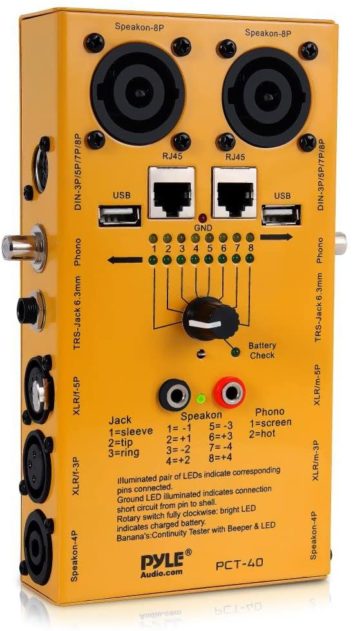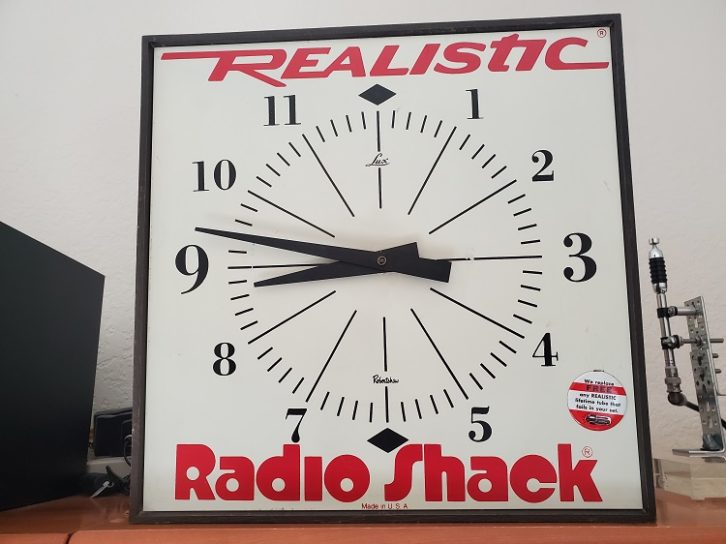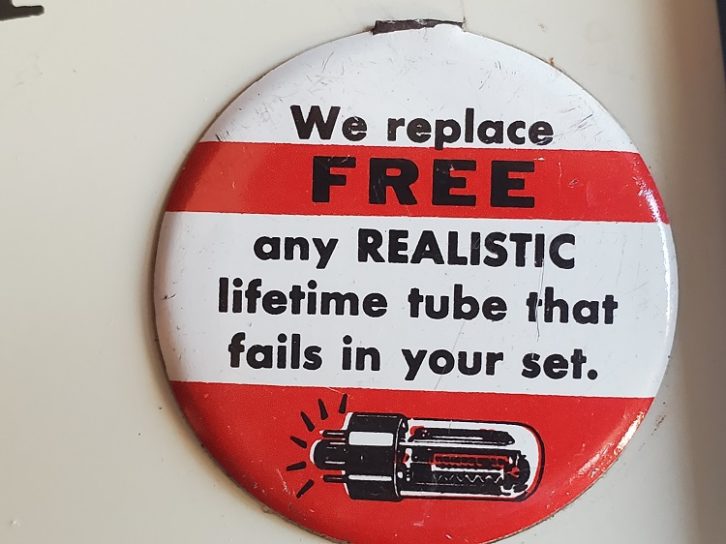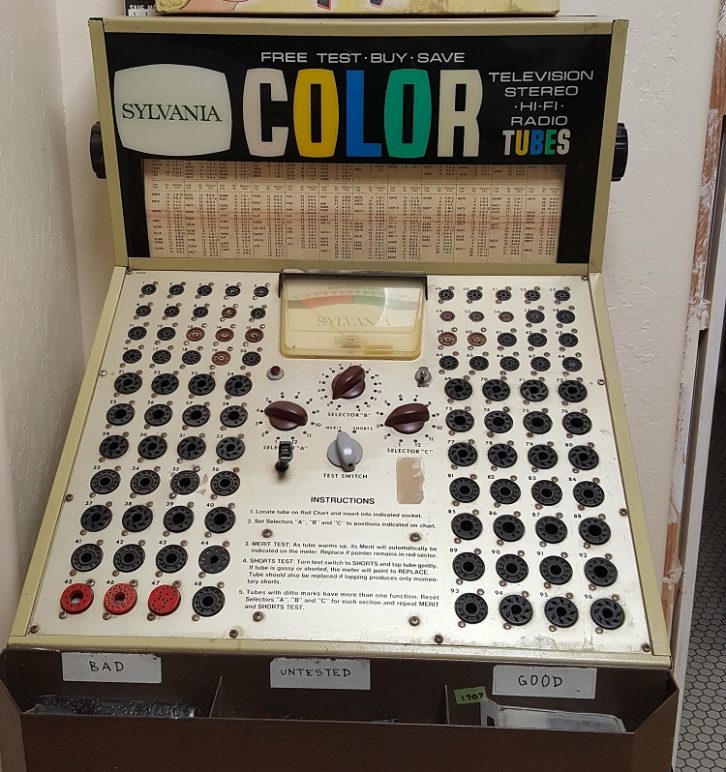
We recently mentioned do-it-yourself cable testers.
Greg Muir of Wolfram Engineering says that if you need a cable tester with a variety of connector interfaces but don’t have “DIY time,” the Pyle PCT40 12-Plug Pro Audio Cable Tester might be a possibility.
While the Pyle website gives a sticker shock price of $96, the tester is commonly available in the $40 price range from many sources online.
The upside is that it accommodates a plethora of connectors for those who may encounter a variety of cables in the field, such as a contract engineer.
Greg has found the tester handy when providing services for venues both in and outside of the radio business.
Operation is simple; just plug both ends of your cable into the mating connectors on the box and rotate the switch through the ranges. Normal cables will illuminate both correlating LEDs on the panel for each switch position.
In the case of cables where a “twist” may be encountered, such as LAN cables, then whichever indicator lights will indicate the twist connections.
Phreak Out
Our recent references to Radio Shack prompted some nostalgia for San Diego engineer Marc Mann.
His first job while in high school in the 1970s was at Radio Shack. He has great memories, learning about new ICs while restocking the pegboards with the latest offerings.
One quiet evening Marc was the only person in the store when some teenagers came in for parts. While paying for them, one of the teens asked if Marc knew what they would be using the components for. Of course he had no idea.
So the customer reached in his pocket and pulled out a small Bakelite box with several pushbuttons. He said, “Want to see something cool?” and he asked for the telephone on the counter.
He took the handset and held the little box to the microphone and began pushing buttons that produced various tones; then he handed the handset to Marc and said “Listen.”
A few moments later, Marc found himself listening to a man with an Australian accent giving the weather report for Sydney, Australia! Marc started to panic, fearing a huge phone bill would ensue and that he would be fired.
The customer assured Marc there would be no charges; he was using what was known as a Phone Phreaking Box, built with Radio Shack parts.
Marc has still kept his Radio Shack Wall Clock, Fig. 2, which he won in a sales contest.

The clock still sports the little metal badge that promises to replace any tubes that were to fail:

How many readers remember and took advantage of this guarantee?
But where’s the pinball lever?
Speaking of tubes, check out the tube tester in Fig. 4. It is on display at the California Historical Radio Society (CHRS) in Alameda.

There are some great memories housed in their 115-year-old former telephone building. It’s a unique West Coast museum, devoted to all things radio.
Visit https://californiahistoricalradio.com/about/.
An AE IOU
As an alternative to The Shack, Marc has been buying parts from Ali Express for about three years.
He initially found its service to be very good, with shipments arriving in 30 to 45 days or less. But in this past year of COVID, it has been more miss than hit, with four out of five orders not showing up.
Basic tracking shows packages leaving U.S. Customs but then they disappear into the ether. Marc writes that, should you continue to order from Ali Express, be aware that if an order doesn’t arrive in 90 days you can easily lodge a “not received” dispute. AE will do an investigation.
Marc has always been reimbursed quickly for any charges incurred. So at this point you should be able to order with confidence. You just have to be patient.
No Fry’s With That
Marc wraps up his buying experiences by suggesting a moment of silence for the demise of Fry’s Electronics.
If you had a Fry’s close by, you know it was a Nerd’s Paradise. Where else could you find just about anything electronic, and on display so you could turn the knobs of oscilloscopes and meters before buying them?
Ironically, six of the massive Fry’s stores originally were purchased from Incredible Universe, another electronics giant that closed in 1996. And who owned Incredible Universe? Tandy Corp. — which at the time was the parent company of RadioShack.
Oops!
By the way, our previous column originally included a sentence that started, “A couple of hours later, he wired the ATX supply wires to the Model plug…”
As most readers probably realized, the word “Model” should have read “Molex,” as we stated correctly in a caption.
John Bisset is in his 31st year writing the Workbench column. He handles western U.S. radio sales for the Telos Alliance and holds CPBE certification with the Society of Broadcast Engineers.
Like Marc Mann, you probably can remember a time when someone asked you, “Want to see something cool?” Mail tips and stories to [email protected].







